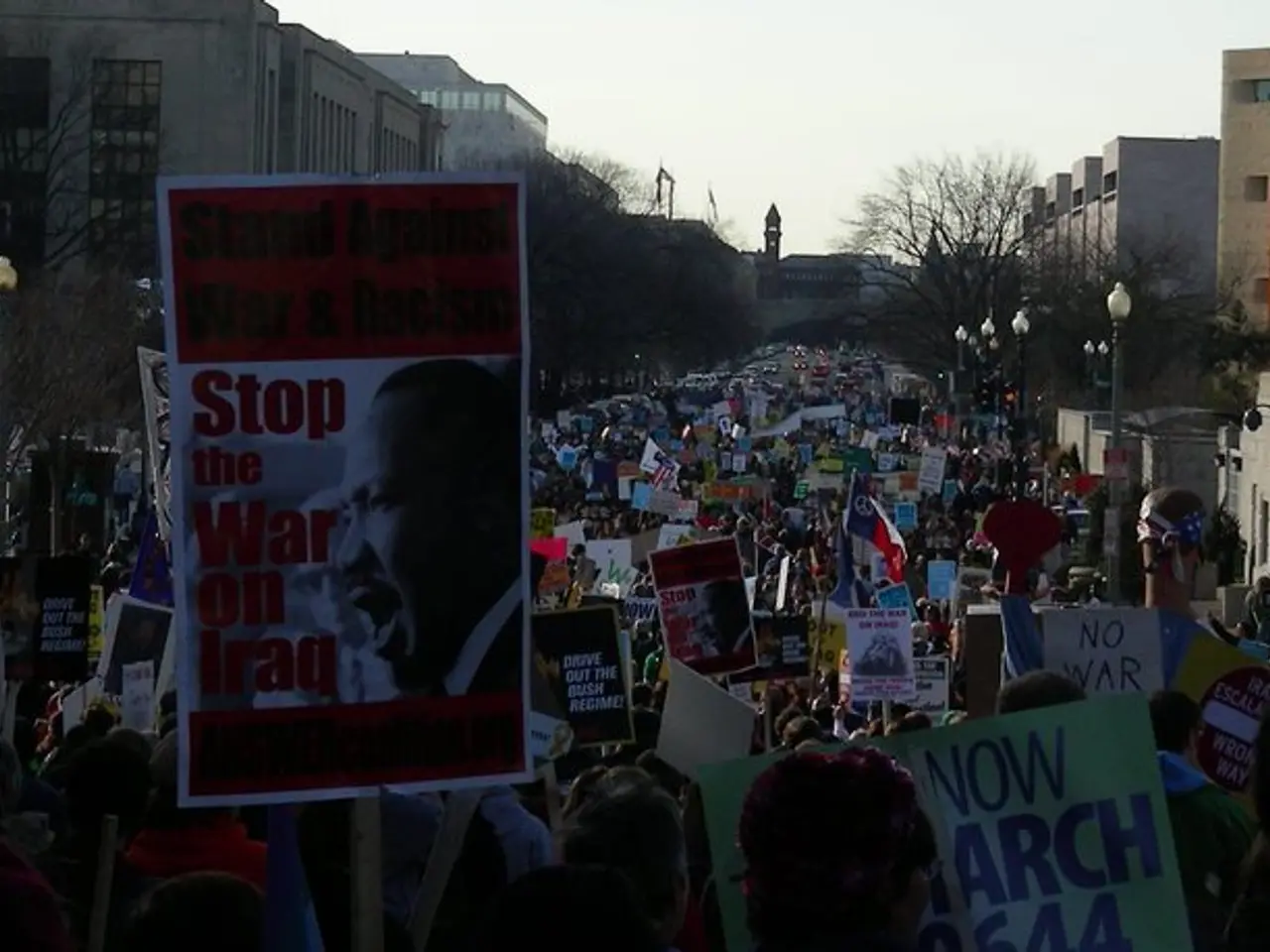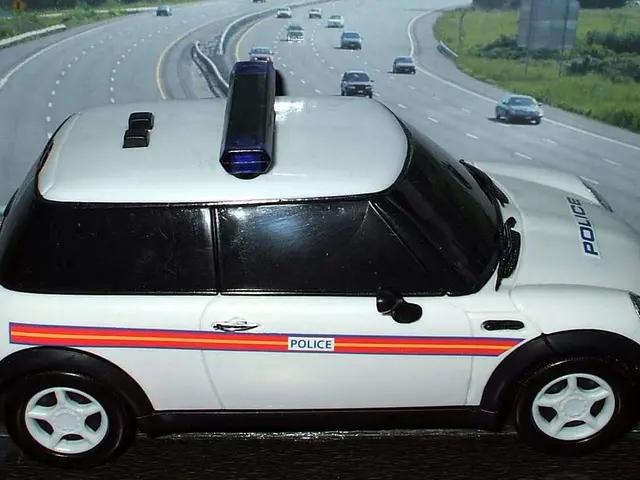Violence persisted until 5 a.m., according to Cologne Police.
In the heart of Cologne, Germany, tensions are running high following the brutal dispersal of an anti-war march. The organization planning the repetition of the disrupted event is the alliance "Rheinmetall entwaffnen" (Disarm Rheinmetall), a group supported by peace activists including the "Freidenker" association in North Rhine-Westphalia.
Locally, the Cologne conservatives are expressing concerns about the future of the Autonomous Center, set to move to a temporary location in the Kalk district. The CDU wants to discuss the camp in their motion, labelling revolutionary, Marxist, and communist groups as "Left-Autonomous."
The incident that has sparked the most controversy occurred during the closing parade of the anti-war camp. Reports from affected individuals, observers, and the lawyer of one of the organizers paint a different picture, criticizing the police's actions as a massive interference with the freedom of assembly. For over three hours, there was no contact between organizers and police, and the assembly was dissolved without consultation. Spontaneous alternative assemblies were initially prohibited.
The police have reported that the majority of the approximately 3000 participants protested peacefully, but the procession was stopped four times due to masked participants carrying "iron bars", using pyrotechnics, and tying banners together. Around 5:40 PM, there were reported attacks on two liaison officers in the Mechthildisstraße, who were injured. However, the committee is particularly critical of the police's actions in the Mechthildisstraße and doubts the alleged attack on the two police "connectors."
The NRW regional group of the Republican Lawyers' Association (RAV) described the police operation as "outright anti-democratic" at a press conference. The police refuse to comply with the Basic Rights Committee's demand to make their deployment protocols public to resolve discrepancies between their version and documented observations.
The "Disarm Rheinmetall" alliance refuses to be intimidated by repression and plans to repeat the broken-up anti-war parade in Cologne. Cologne council member Sarah Niknamtavin emphasized the importance of such demonstrations, particularly in times of war, violence, and genocide.
The incident resulted in 13 police officers being injured, while 147 demonstrators were injured, with 18 requiring hospitalization. The Left party's Cologne faction leader, Michael Weisenstein, sharply criticized the repression against the parade. Lawyer Anna Busl emphasized that there were never sufficient grounds for a dispersal of the anti-war camp in Cologne. According to Busl, the claim by official sources and the CDU that the intervention was due to an attack on two officers is "simply false" and can be proven with video material.
Around 500 people were held in a kettle for up to four and a half hours without water or toilets, and the use of these facilities was made conditional on the provision of personal details. This has sparked further criticism and concerns about the police's actions during the dispersal.
The future of the anti-war movement in Cologne remains uncertain, but one thing is clear: the events of the past few days have sparked a heated debate about the role of peaceful protest, police actions, and civil liberties in the city.
Read also:
- Asthma Diagnosis: Exploring FeNO Tests and Related Treatments
- Gigantic Mammoth Center, another colossal structure, faces a potential impasse?
- Trump advocates for the withdrawal of two candidates to create a one-on-one mayoral race between him and Mamdani in New York City
- Annual castle celebration marking the anniversary of the Landshut wedding








